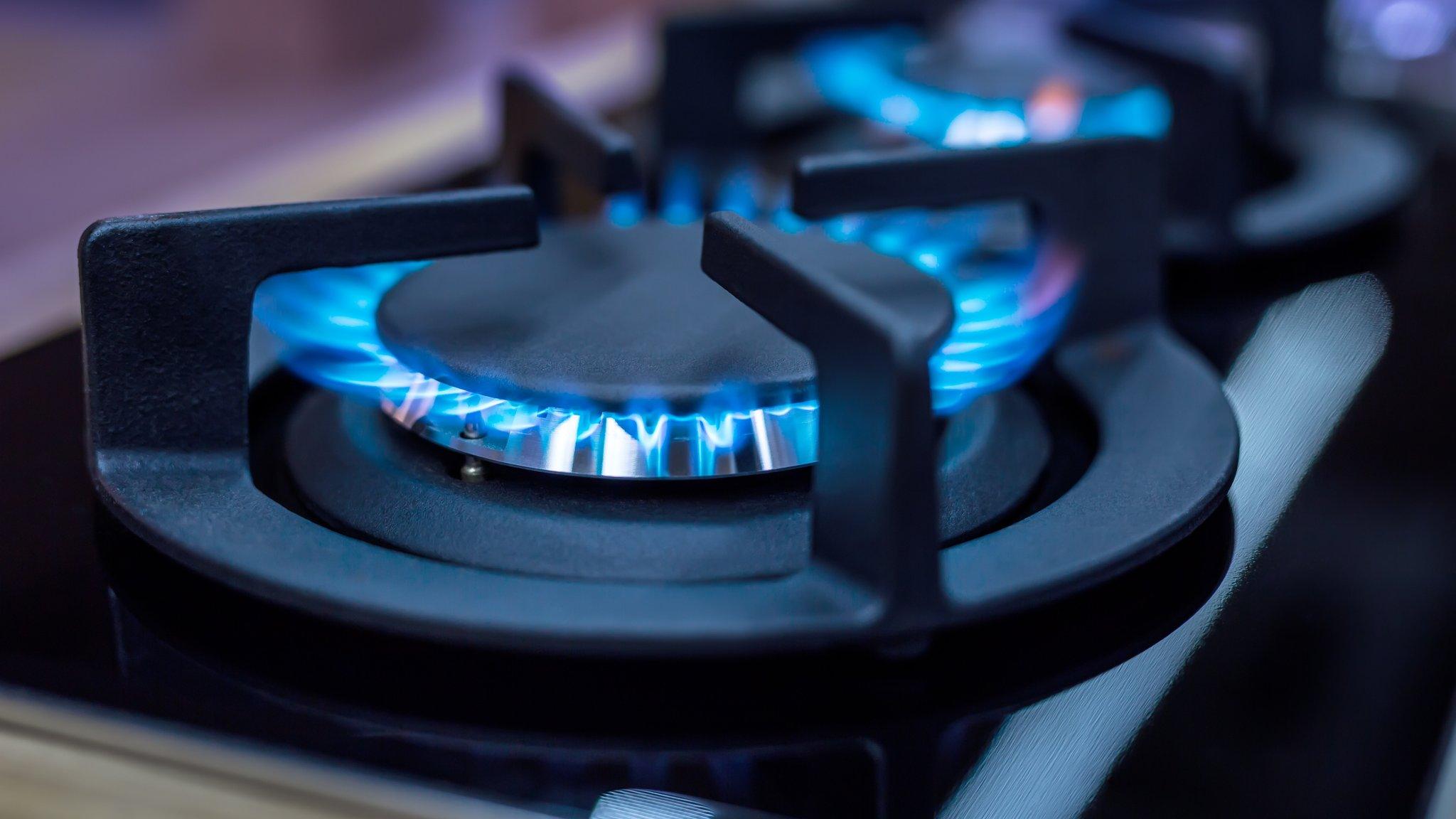Energy price cap plans revealed
- Published
- comments
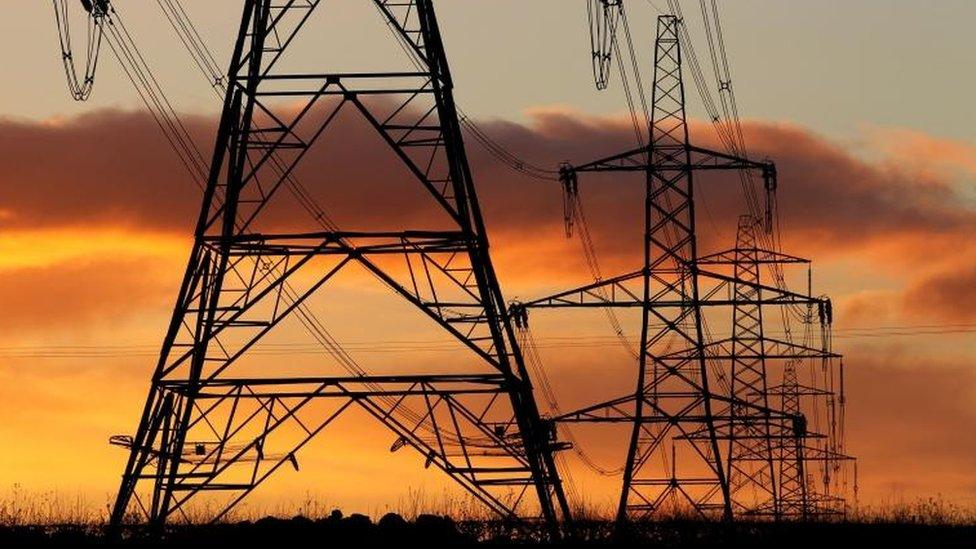
Draft legislation designed to lower the cost of energy bills has been published by the government.
The Draft Domestic Gas and Electricity (Tariffs Cap) Bill, external will give energy regulator Ofgem the power to cap standard variable tariffs.
About 12 million households are on some form of uncapped default tariff, which can cost hundreds of pounds a year more than the cheapest deals.
However, the price cap is unlikely to take effect before winter.
The cap will last until 2020, and possibly be extended to 2023 if Ofgem decides that is necessary, the government said., external
Tariffs for prepayment meters, which are already subject to a cap, as well as "green" energy tariffs, will be exempt from the proposed changes.
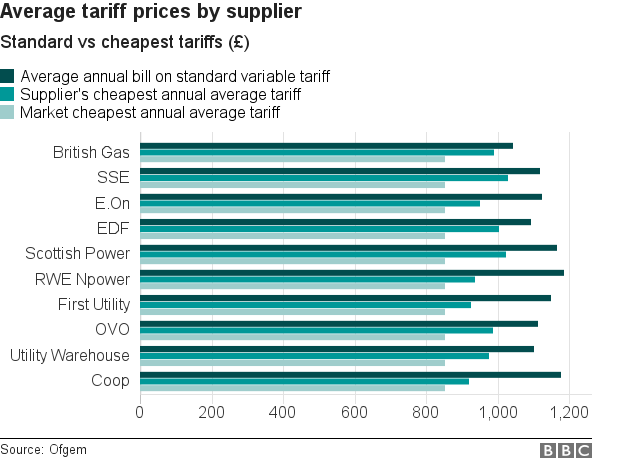
Prime Minister Theresa May said the energy market "has to offer fairer prices for millions of loyal customers who have been paying hundreds of pounds too much".
Business and Energy Secretary Greg Clark said that customers of the big six energy suppliers were "overpaying to the tune of £1.4bn a year".
"That is simply wrong," he said, adding that the draft legislation would send a "clear message to suppliers they must act to put an end to loyal consumers being treated so unfairly".
Competition threat
However, Steve Smith, director of energy switching firm Flipper and former Ofgem board member, said a cap could push up fixed fees.
"A regulated price means people will switch off and think 'the government's looking after me'," he told the BBC.
It was clear Ofgem was being told to implement the cap by the government, Mr Smith said, but the cap went against the advice of the Competition and Markets Authority (CMA).
"It could actually do harm to competition and means many customers will end up paying a lot more. If two-thirds of the market is covered by a cap you start to question whether it's a market at all."
Energy firm E.On has said it will scrap standard variable tariffs from next year for customers using smart meters, and Scottish Power has also said it is better to scrap the tariffs than cap them.
But Mr Smith said the firms were "not actually doing anything about standard variable tariffs for the large number of customers who had never switched".
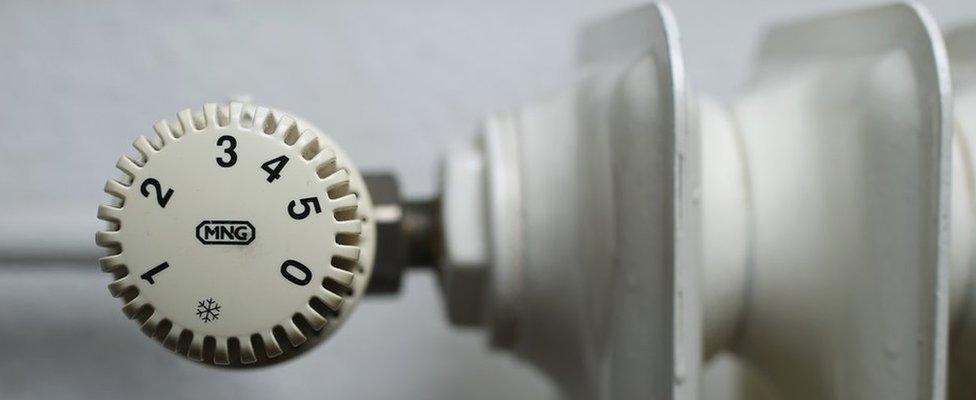
He added that the £1.4bn figure quoted by Mr Clark, which came from the CMA, was "entirely hypothetical" and controversial.
"They talk about this £1.4bn of excess profits - it's not money you'd go and find in the [energy] companies accounts, it was a very hypothetical view of the Competition and Markets Authority on how the companies should run themselves and how efficient they could be."
Alex Neill of consumer body Which? said although the cap might sound like a positive move for consumers, "the government must guard against any unintended consequences that undermine customer service and push up prices as a whole".
The plan to cap energy charges was revived last week by Mrs May.
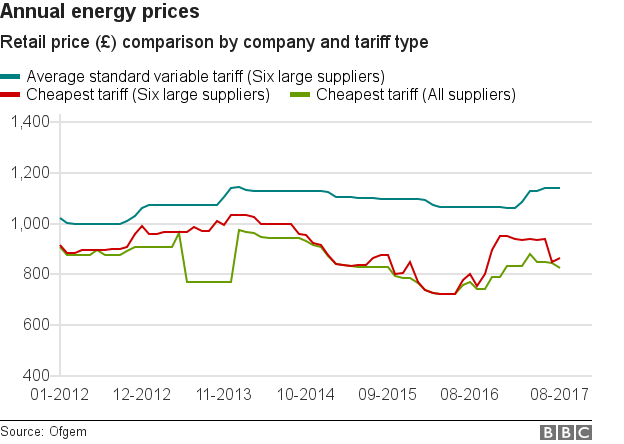
However, Ofgem said on Wednesday that it would have to wait for legislation to be in force before it could take action on standard variable tariffs.
The draft legislation will be scrutinised by a committee of MPs intended to build cross-party consensus on how the price cap will work.
The draft Bill follows an announcement on Wednesday by Ofgem to extend a prepayment tariff price cap to another one million vulnerable households, saving them £120 a year, although this will not take effect until February.
- Published12 October 2017
- Published12 October 2017

- Published4 October 2017
